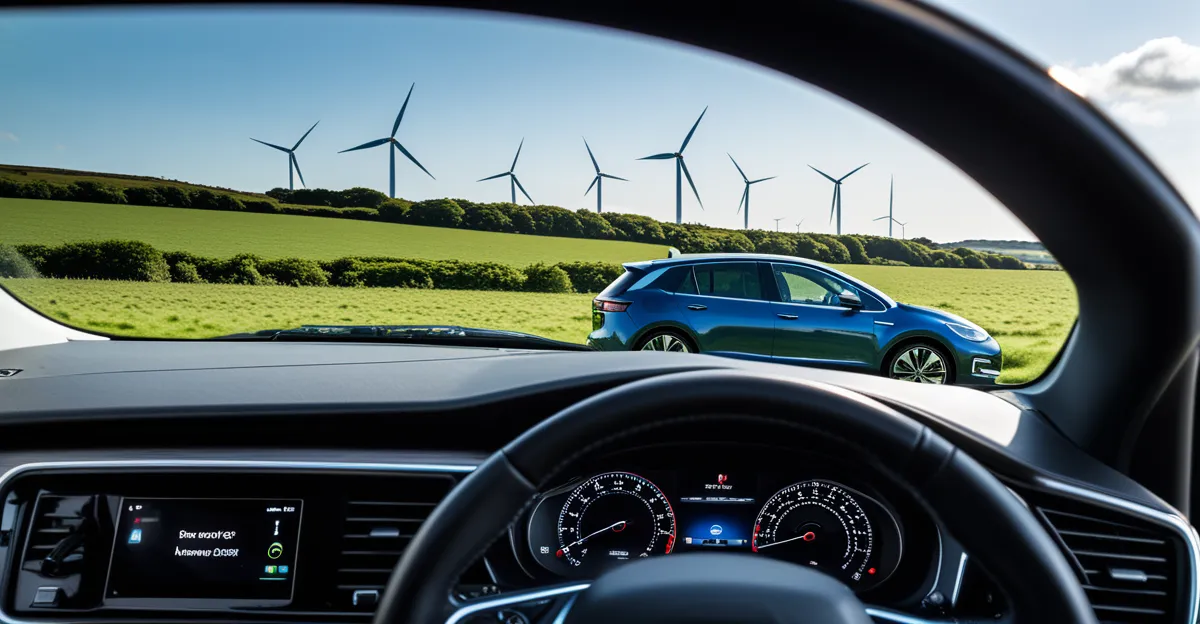The Integration of Renewable Energy in UK Automotive Manufacturing
The UK automotive industry is increasingly embracing renewable energy integration to support green manufacturing goals. This shift is evident in the growing adoption of wind and solar power within automotive factories across the country. By installing on-site solar panels and sourcing wind-generated electricity, manufacturers reduce reliance on fossil fuels, directly lowering their manufacturing carbon footprint.
Beyond factory floors, renewable energy use extends throughout supply chains. Suppliers are incentivized to implement clean energy solutions, reinforcing sustainability from raw material extraction to component assembly. This comprehensive approach highlights the industry’s commitment to environmental responsibility and aligns with broader national decarbonisation efforts.
Also to discover : What Will the Future Hold for the UK’s Automotive Industry?
In practical terms, integrating renewable energy sources decreases greenhouse gas emissions and helps companies meet stricter regulations. The transition also serves as a catalyst for the UK automotive sector to enhance innovation in efficient manufacturing processes, demonstrating environmental leadership while maintaining competitive production capabilities.
Government Policies and Industry Initiatives Driving Renewable Adoption
Government policies in the UK play a pivotal role in accelerating renewable energy integration within the automotive industry. The UK government renewable policies focus on setting ambitious decarbonisation targets aligned with international climate commitments. Legislation encourages manufacturers to reduce carbon emissions by offering incentives such as tax breaks, grants, and subsidies for adopting clean energy technologies. For example, the Climate Change Act mandates significant emissions reductions across sectors, compelling the automotive sector initiatives to prioritize sustainable production methods.
Also to see : What role does artificial intelligence play in UK automotive design?
Industry initiatives complement these policies, with leading automotive manufacturers committing to transition their factories and supply chains entirely to renewable energy sources. These commitments often include milestones related to wind and solar power adoption, reinforcing the green manufacturing ethos. Several public-private partnerships have been established to mobilize funding and share expertise. Such collaborations help overcome initial investment barriers and enable research into innovative renewable technologies tailored for automotive production.
This coordinated approach between government and industry drives measurable reductions in the manufacturing carbon footprint while supporting green manufacturing growth. Through policy guidance and collaborative action, the UK automotive sector is positioned to lead in renewable energy adoption and achieve its environmental goals effectively.
Electric Vehicles and Advances in Green Technologies
The UK automotive industry is rapidly advancing the development and production of electric vehicles (EVs), reflecting a strong push toward automotive innovation UK. Automakers are expanding their EV and hybrid model lineups, addressing both consumer demand and regulatory pressures aimed at lowering emissions. These efforts are pivotal in transitioning from traditional fossil fuel-powered vehicles to cleaner alternatives.
A key element in this transition is integrating renewable energy integration into vehicle production and their supporting infrastructure. Factories increasingly utilize renewable electricity to power the manufacturing processes behind EVs, reinforcing the principles of green manufacturing. Simultaneously, the development of renewable-powered charging networks—for instance, solar-powered charging stations—enhances the sustainability of EV usage.
Research into alternative fuels complements these advances. The UK automotive industry explores hydrogen and biofuel applications to diversify energy sources beyond electricity. Hydrogen fuel cells offer promising zero-emission vehicle technology, while biofuels can provide renewable, lower-emission options compatible with existing vehicle fleets. These innovations underscore the sector’s commitment to comprehensive sustainability, driving reductions in carbon footprints across production and end use.
Environmental and Economic Benefits of Renewable Energy
Integrating renewable energy into the UK automotive industry leads to significant emissions reduction that directly supports environmental sustainability. By switching to cleaner power sources like wind and solar, manufacturers substantially lower their greenhouse gas emissions, addressing key climate commitments. This transition materially reduces the manufacturing carbon footprint, mitigating air pollution and contributing to national goals of carbon neutrality.
Economically, renewable energy presents compelling advantages. Automakers benefit from long-term energy cost savings as renewable technologies decrease dependence on volatile fossil fuel markets. These savings can be reinvested into innovation and expanding green manufacturing capacity. Additionally, the shift enhances the global competitiveness of the UK automotive sector by aligning production with increasing consumer demand for sustainable products and stringent international environmental regulations.
In summary, the environmental improvements accompanied by these economic incentives create a win-win situation. By embracing renewable energy integration, the automotive industry positions itself for both ecological responsibility and robust financial performance, ensuring a sustainable future for the UK’s manufacturing base.











